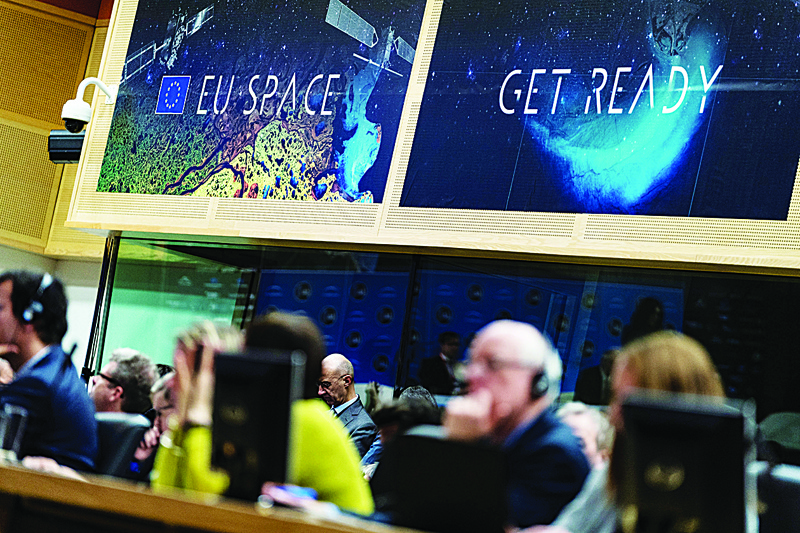
BRUSSELS: Space is becoming increasingly militarized and European satellites are under-protected, experts warned Tuesday, voicing dismay at cuts proposed in the EU's draft budget. "The rise in geopolitical tensions we see on Earth is being extended and projected into space," EU diplomatic chief Josep Borrell told the 12th European Space Conference, which groups policymakers, industry and researchers. French General Michel Friedling, the head of France's new Space Command, warned of "grey actions" in space that stopped short of being hostile.
"But all space powers are developing capabilities and systems capable of spying, neutralising and even destroying," he said. India has fired missiles capable of hitting a satellite and Russia has been caught spying, while President Donald Trump has launched a US "space force" and NATO has designated space as a domain of conflict alongside land, sea, air and cyberspace.
The threats in space come not only from military actors-but also from more and more private operators, Borrell warned. And the space around Earth is becoming congested, with debris increasing the risk of collisions. Of the 5,000 satellites currently in orbit, 2,000 are operational. Europe's own satellite systems, Galileo, EGNOS and Copernicus, are vulnerable and must be protected, Friedling said-all the more so because they are used by both civilians and the military.
France is ready to face threats in space and is "looking for capable partners with ambitions", the French general added. Italy wants to be involved, planning to equip itself with a space command, junior defence minister Angelo Tofalo told the conference on Tuesday. Critics within the EU of the militarisation of space include notably Belgium, which "is opposed to it," warned Foreign and Defense Minister Philippe Goffin.
Budget wrangling
The European Union has big plans for its space and defence industries, but cuts to the bloc's proposed budget for 2021-27 of some 200 billion euros ($220 billion) have caused alarm. The European Defence Fund has seen its proposed share fall from 13 to seven billion euros and space programs have lost 20 percent of their allocations. The initial budget plan earmarked huge growth in funding for defense as the bloc looks to become a more credible geopolitical player, but with richer member states looking to trim their contributions after Brexit, a slimmed-down plan was put forward by Finland when it held the rotating EU presidency.
Romanian conservative MEP Christian-Silviu Busoi, chairman of the European Parliament's Industry Committee, warned that the cuts would jeopardize the Galileo program-the European satellite navigation system-and Copernicus, the EU's Earth observation program.
The EU's competition and digital supremo Margrethe Vestager warned that money was needed to back "new ideas and new technology" and said she hoped it would be available in the next budget. Budget haggling will rumble on for some time, with EU Council President Charles Michel facing the unenviable task of bridging the near 240 billion euro gap between the demands of the European Parliament and Finland's proposal. -AFP










